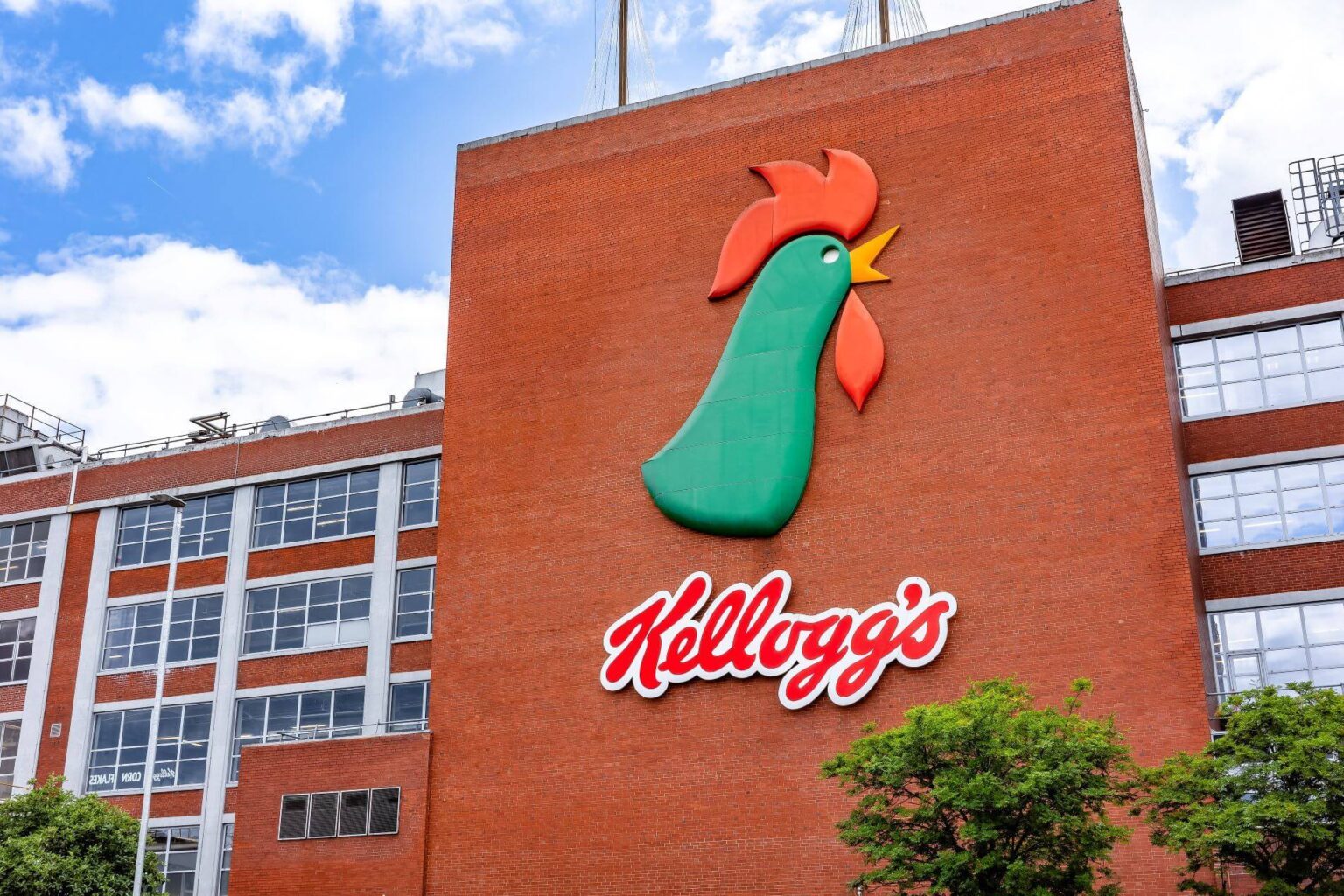Snap, crackle, flop? The UK arm of the global food manufacturer Kellogg’s made over £1bn in sales of its breakfast cereals and Pringles snacks last year, but celebrations have been soured by the company reporting an overall profit loss.
Kellogg’s UK split into two companies (Kellogg Marketing and Sales Company UK and Kellogg Company of Great Britain) both of which are headquartered in Salford, last October.
In the 12 months to December 2023, both entities recorded a combined loss of £32.5m.
It’s a perplexing contradiction. Companies boast record-breaking sales figures, yet somehow manage to report net losses. The trend has become increasingly common among tech giants and other corporations. So what’s going on, and what does it mean for Kellogg’s?
What’s eating into Kellogg’s profits?
For 2023, newly-filed accounts with Companies House show that Kellogg Marketing and Sales Company (UK) reported a pre-tax profit of £28.5m, up from £24.1m in 2022.
However, the accounts for Kellogg Company of Great Britain show it went from making a pre-tax profit of £13.6m to a loss of £61m, despite an increase in snacks net sales.
There are a number of reasons why a billion-pound business such as Kellogg’s UK can still end up in the red at the end of the financial year. One key culprit is the wider economy, which has this year turned growth plans for many retailers and manufacturers soggy.
Flaky competition
Retail sales have declined as consumers alter purchasing habits to save, rather than spend.
Analysis from The Grocer finds that branded cereals have been one of the hardest hit, as Brits swap to cheaper, own-brand boxes from supermarkets. Sales volumes for branded cereals fell by 6.5% in 2024, with figures for Kellogg’s Corn Flakes dropping by 2.9% alone.
To maintain a competitive edge, companies are pouring billions into research and development, infrastructure, and aggressive marketing plans. While these investments may pay off in the long run, they often eat into short-term profits.
Kellogg’s is no exception. Just this week it unveiled a new £12m marketing campaign which will see Cornelius the cockerel, the brand’s 66-year-old mascot, revamped into a 3D Godzilla-style monster stomping through a city’s streets.
Boxed-in internationally
The global economic landscape is also becoming increasingly volatile. In a statement signed off by the board, Kellogg Marketing and Sales Company said that cereal sales had been offset due to “unfavourable foreign currency” exchange rates.
This may also be why smaller cereal brands and breakfast producers are finding success where international corporations are stalling. Thanks to their small operations, startups find it easier to pivot where large organisations might need years to change strategies.
UK startups such as the gut-health brand, Bio&Me and protein-packed, SURREAL are leaping ahead of the competition, with the former having launched its first national media campaign earlier this year.
Rising operational costs
Another factor affecting Kellogg’s is the escalating cost of doing business. From rising labour costs to increased regulatory burdens, companies are facing a perfect storm of expenses.
In May, Kellogg’s shared plans to shut down its Manchester-based factory at the end of 2026, leading to around 360 job losses, in order to consolidate its operations.
“We only use half the space in the buildings and the investment required to maintain the factory in future is simply not viable”, said Chris Silcock, UK managing director at Kellogg’s.
To further save money, Kellogg’s has reduced its product sizes (a pack of Corn Flakes shrank by 10% this year, The Grocer reports). Still, prices have surged by 12%, a form of “shrinkflation” that may have led to higher turnover, but could harm sales in the long-term.
Bowlful of benefits
Despite the recorded loss, and the expected future job losses at its Trafford Park factory, Kellogg Company of Great Britain also issued a dividend of £176.1m in 2023.
Dividends are paid out to shareholders on an annual basis. Businesses are not legally required to issue dividends. Instead, the decision to hand these out will have been made by the Kellogg’s board of directors, and it may seem odd when the business is losing its shirt.
However, dividends may also be calculated based on growth opportunities and shareholder expectations. With Kellogg’s having poured money into its marketing spend this year, it seems to be expecting its value to increase soon.
“The directors are confident that with the pipeline of commercial initiatives, product innovation and various growth and efficiency programmes, the business will be well positioned for the future”, finished the Kellogg’s UK statement.
Grains of hope
The desire to keep shareholders happy may also be related to the sale of Kellogg’s parent company to food giant Mars, which owns brands such as M&M’s, Snickers, and Skittles.
In August, Mars announced it is buying the Kellanova brand in a deal worth £28bn. The takeover is expected to be completed at the start of 2025. The deal could mark a new chapter for the brand. However, with consumer appetite still low, the company must find a way to reduce cereal costs to compete with cheaper, store-brand alternatives.
All eyes are on Kellogg’s to see if a new production strategy and revamped brand identity will be enough to sweeten the deal for its shareholders and future owner, Mars.




